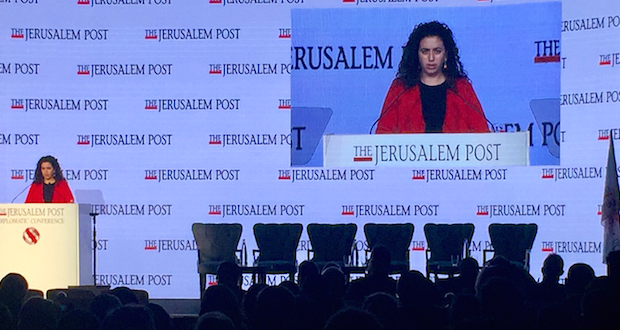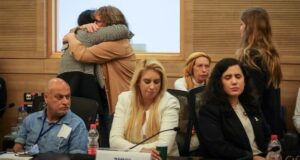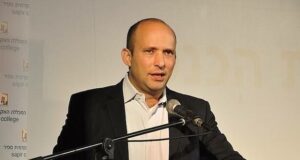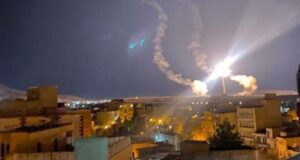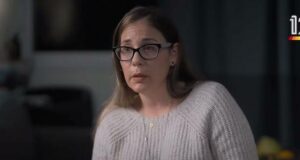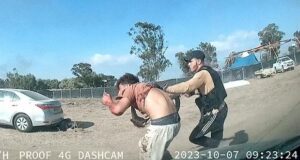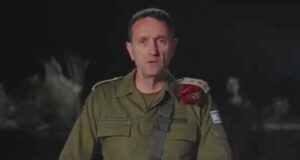Former Mayor of Israeli town address diplomats on how terrorism affected them.
“It’s a strange analogy perhaps, but just as we in the biblical heartland of Israel are healing children and rebuilding for the future, an Islam that truly wants peace must heal itself of its sick jihadist mentality that teaches children to hate and kill and to seek dominance over Jews and Christians,” David Rubin told a crowd of more than 400 foreign diplomats in Jerusalem on Wednesday.
A former mayor of Shiloh, located in the biblical heartland of Samaria, and the founder and head of the Shiloh Israel Children’s Fund (SICF), Rubin spoke at the Jerusalem Post Diplomatic Conference, ahead of a panel discussion on global terror and its threat to Israel and Europe.
In his talk, Rubin did not discuss the politics of terror. Rather, he focused on “the human side of the issue,” the psychological trauma that thousands of children in the biblical heartland of Israel have suffered from, which he said is often ignored.
“When a terror attack is reported in the news, it seems to be an absurd numbers game – 3 dead and 7 wounded, 5 killed and 13 wounded and then the media goes on to discuss the physical wounds, but the psychological trauma to individuals and communities is usually not discussed,” Rubin said.
In 2001, Rubin and his then 3-year-old son were driving home from Jerusalem when a hail of terrorists’ bullets struck their car. Rubin was struck in the leg and his son was shot in the head, causing a skull fracture and internal bleeding in the cerebellum. The bullet had missed his brain stem by one millimeter.
That attack was the catalyst for Rubin’s founding of SICF to heal children victims of terror. Today, the program has a therapeutic-educational campus with a formal therapy center using art, music, movement, and bibliotherapy, a separate horse farm for therapeutic horseback riding, two regional schools, kindergartens, informal therapy stations, such as a music playground and studio, and a petting zoo for animal-assisted therapy. More than 2,000 children are served on that one campus, with many others served in surrounding communities and in other parts of Samaria. SICF is also building playgrounds within communities and the program offers support for youth and summer camps.
“Children, despite their seeming openness, when confronted with trauma, they bury it inside, and if not treated, it comes out in all the wrong ways – sleepless nights, sudden bursts of anger and panic attacks,” Rubin explained.
Avital Rubin, Rubin’s daughter who was in third grade at the time of the attack, also addressed attendees. She talked about her own trauma from living through the terrorist attack on her dad and brother. She told how when she went to visit her father in the hospital, a younger sister was scared to come close.
“I felt I was brave giving my father a hug,” Avital said. “Something so normal for a 7-year-old, but in this case, such a challenge.”
It was several years later, when her father and brother had physically healed, that Avital started having nightmares about death and people around her getting hurt.
“I would cry myself to sleep with terrifying thoughts about death,” she said.
Ultimately, Avital was treated by her father’s SICF.
“Trauma affects you and is expressed also years later,” Avital said. “It is not a battle that is over. We must contend with it all the time. My thoughts and fears didn’t disappear, they just matured together with me, and are a part of who I am.”
 Metro Voice News Celebrating Faith, Family & Community
Metro Voice News Celebrating Faith, Family & Community 
